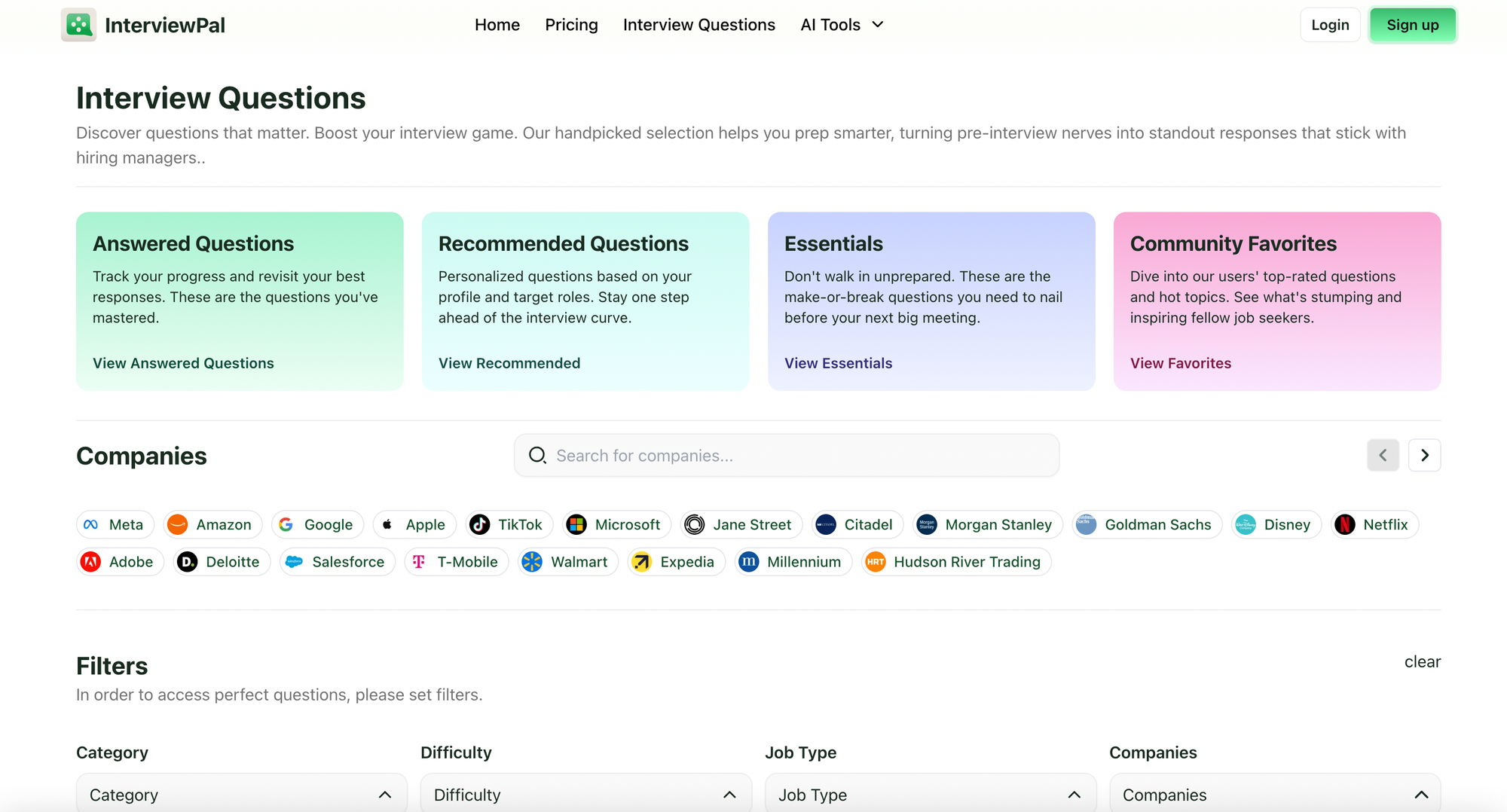Few interview questions make candidates sweat like “Tell me about a time when you made a mistake.” After all, who wants to revisit their mistakes, especially in a high-stakes interview setting? But here’s the truth: this question isn’t meant to trip you up. Instead, it’s an opportunity to demonstrate your self-awareness, honesty, and ability to learn and grow.
When employers ask about a past mistake, they’re really trying to gauge a few things: Can you own up to errors? Do you understand the impact of your actions? And most importantly, did you learn something that will help you avoid similar mistakes in the future? With the right approach, your answer can showcase resilience, adaptability, and problem-solving skills that hiring managers value.
In this article, we’ll explore how to structure your answer, what mistakes to discuss, and how to tailor your response for different situations. Plus, we’ll cover specific examples to guide you through crafting your own authentic response.
Why Interviewers Ask About Mistakes?
Understanding the purpose behind this question can help you craft a more targeted response. Here are some of the key traits employers want to see when they ask about mistakes:
- Accountability: Owning up to a mistake shows maturity and integrity. It signals that you’re someone who takes responsibility for their actions instead of shifting blame onto others.
- Self-Awareness: Mistakes happen to everyone, but not everyone can analyze them constructively. A candidate who can reflect on their actions and recognize areas for improvement shows self-awareness, which is crucial for growth.
- Problem-Solving Skills: How you handled the mistake is often more important than the mistake itself. Employers want to see that you can think on your feet and resolve issues effectively.
- Growth Mindset: This question is a great way to reveal your approach to learning from challenges. A candidate with a growth mindset sees mistakes as learning opportunities and makes efforts to avoid repeating them.
With this understanding, let’s break down how to answer this question thoughtfully and strategically.
Step 1: Choose the Right Mistake to Discuss
The key to a strong answer lies in choosing the right example. Here’s what to keep in mind:
- Pick a Real Mistake: Don’t be tempted to use a "fake mistake" like, “I work too hard” or “I care too much about my job.” These answers come off as disingenuous. Instead, choose a real experience that had a clear impact.
- Avoid Major Blunders: While you should be honest, it’s wise to avoid examples that show poor judgment, negligence, or anything that could make an employer question your reliability. A minor mistake with a good lesson is ideal.
- Focus on Situations Relevant to the Role: Select an example that relates to the skills or responsibilities relevant to the position you’re applying for. For instance, if the job requires meticulous attention to detail, you might share a story about a time you overlooked a detail but corrected it.
Step 2: Use the STAR Method
The STAR method (Situation, Task, Action, Result) is a structured approach that helps you tell a concise, focused story. Here’s how to apply it when discussing a mistake:
- Situation: Briefly describe the context or background of the situation. Keep it simple and relevant to avoid getting bogged down in details.
- Task: Explain what your responsibility was in the situation and why it mattered.
- Action: Describe the mistake you made and, most importantly, what you did to handle it. Focus on how you responded and took responsibility.
- Result: Share the outcome and, ideally, what you learned from the experience. The goal is to leave the interviewer with a positive impression of how you grew from the mistake.
Example Answers for Different Situations
To help you prepare, here are some example answers for various situations and roles. Each one follows the STAR method, showcasing how to address different types of mistakes with professionalism and self-awareness.
Example 1: Administrative Oversight in a Project Management Role
Situation:
"In my previous role as a project manager, I was overseeing a large project with multiple stakeholders. One of my key responsibilities was to update all team members on any changes to the timeline or scope."
Task:
"I needed to ensure that each department had the latest information so we could stay on schedule and on budget."
Action:
"At one point, I forgot to notify the design team of a major timeline change. This oversight led them to proceed with their tasks under the original timeline, and we ended up with a backlog that delayed the project by a week. Once I realized the mistake, I took full responsibility, communicated the delay to our stakeholders, and worked with the design team to expedite their tasks. I also implemented a communication checklist to ensure all updates went to the correct teams."
Result:
"The project was ultimately completed on time, but the experience taught me the importance of double-checking communications. I now have a process in place that ensures timely updates to every department, preventing similar issues in the future."
This example shows accountability, a proactive approach to resolving the issue, and a clear lesson learned that improved the candidate’s project management skills.
Example 2: Data Error in an Analytical Role
Situation:
"As a data analyst, I was responsible for compiling weekly reports on sales performance, which the marketing team used to adjust their strategies."
Task:
"During one busy week, I accidentally included data from an incorrect time frame in the report. This skewed the results and initially misled the team on our performance metrics."
Action:
"Once I discovered the mistake, I immediately corrected the data, re-ran the analysis, and sent an updated report to the team with a note explaining the error. I apologized for any confusion it caused and offered to go over the updated numbers in person. To avoid similar mistakes in the future, I created a checklist for verifying data ranges before finalizing each report."
Result:
"The team appreciated my transparency, and my manager commended my quick response. Since then, my verification process has become a regular part of my workflow, which has prevented further errors and strengthened my attention to detail."
This example highlights the candidate’s integrity, problem-solving skills, and commitment to quality, all valuable traits in an analytical role.
Example 3: Miscommunication in a Customer Service Role
Situation:
"As a customer service representative, I handled inquiries and escalations for a retail company. One day, a customer called about an issue with an order, and I misunderstood their concern, which led to a delay in resolving their problem."
Task:
"My goal was to resolve the issue quickly and maintain a positive customer experience."
Action:
"After realizing my mistake, I called the customer back to clarify their needs. I apologized for the confusion and took immediate steps to resolve the issue, including offering a small discount for the inconvenience. Additionally, I requested feedback to ensure the customer felt valued and heard."
Result:
"The customer appreciated my efforts to make things right, and we ended the call on a positive note. This experience reminded me to always confirm details with customers before moving forward, which has helped me become a more attentive listener and improved my performance in similar situations."
In this answer, the candidate shows empathy, adaptability, and a customer-first attitude, all essential qualities in customer service.
Example 4: Missed Deadline in a Creative Role
Situation:
"I was working as a graphic designer, handling a project with a strict deadline for a major client. I underestimated the time it would take to finalize the design, and I missed the original deadline."
Task:
"My responsibility was to deliver a completed design on time to ensure the marketing team could launch their campaign as scheduled."
Action:
"Once I realized the deadline was at risk, I immediately informed my manager and the client, explaining the reason for the delay. I put in extra hours over the weekend to ensure I delivered the best possible design as quickly as possible. Afterward, I adjusted my time estimates for future projects to account for revision rounds and unanticipated obstacles."
Result:
"Although I initially missed the deadline, the client was pleased with the final design, and they appreciated my transparency. This experience taught me the importance of realistic time management, and I now set more accurate timelines for my work."
This example demonstrates honesty, commitment to quality, and an ability to learn from time management challenges—key traits for creative professionals.

Main Takeaways for Answering Mistake-Related Interview Questions
- Be Honest but Selective: Choose a real mistake, but one that isn’t too damaging. Highlighting a small oversight or a learning experience is often more effective than discussing a major failure.
- Focus on Solutions, Not Excuses: Avoid making excuses or blaming others. Emphasize how you took ownership and acted to rectify the situation.
- Highlight the Lesson Learned: The main point of this question is to demonstrate growth. Conclude your answer with what you learned and how you’ve applied that lesson moving forward.
- Tailor Your Example to the Role: Whenever possible, choose a mistake that’s relevant to the position. This shows that you’re aware of the skills needed for the role and are continuously improving.
A Great Resource to Practice Behavioral Interview Questions
If you’re preparing for behavioral questions like this one, consider checking out InterviewPal, a tool that offers an extensive question bank and mock questions to help you practice and refine your responses. By rehearsing with InterviewPal, you can gain confidence, structure your answers effectively, and ensure you’re fully prepared for your next interview.
Answering questions about mistakes can feel vulnerable, but with the right example and a thoughtful approach, you can turn a potential pitfall into an opportunity to showcase your character. Remember, employers aren’t looking for perfection—they’re looking for growth, resilience, and a commitment to continuous improvement.



